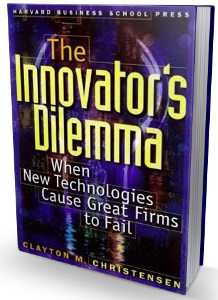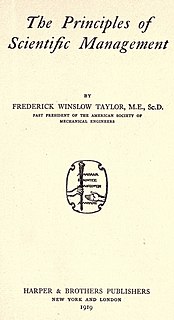 W
WThe 50th Law is a New York Times bestselling book on strategy and fearlessness written collaboratively by rapper 50 Cent and author Robert Greene. The book is a semi-autobiographical account detailing 50 Cent's rise as both a young urban hustler and as an up-and-coming musician with lessons and anecdotes from historical figures such as Abraham Lincoln, Sun Tzu, Socrates, Napoleon, Malcolm X, and James Baldwin.
 W
WConcept of the Corporation (1946) is a book by management professor and sociologist Peter Drucker. It is widely held to be the first book of its kind.
 W
WFirst Things First (1994) is a self-help book written by Stephen Covey, A. Roger Merrill, and Rebecca R. Merrill. It offers a time management approach that, if established as a habit, is intended to help readers achieve "effectiveness" by aligning themselves to "First Things". The approach is a further development of the approach popularized in Covey's The Seven Habits of Highly Effective People and other titles.
 W
WGetting Things Done (GTD) is a time management method, described in the book of the same title by productivity consultant David Allen.
 W
W"The Giving of Orders" is a 1926 essay by Mary Parker Follett. In it, she addresses issues of authority in business management, specifically how managers can gain influence over informal groups that naturally form in the workplace. She found that people respond better to situations than to top-down orders and managers should give people the means and willingness to respond to given situations instead of merely giving orders: "My solution is to depersonalize the giving of orders, to unite all concerned in a study of the situation, to discover the law of the situation, and obey that."
 W
WGood Profit: How Creating Value for Others Built One of the World's Most Successful Companies is a 2015 book by Charles G. Koch. It was published in the United States by Crown Business, an imprint of the Crown Publishing Group, a division of Penguin Random House LLC. It was published in the United Kingdom by Piatkus.
 W
WIdentifying and Managing Project Risk by Tom Kendrick is a book about identifying and managing risks on projects. It was published on April 25, 2003 by American Management Association.
 W
WThe Innovator's Dilemma: When New Technologies Cause Great Firms to Fail, generally referred to as The Innovator's Dilemma, first published in 1997, is the best-known work of the Harvard professor and businessman Clayton Christensen. It expands on the concept of disruptive technologies, a term he coined in a 1995 article Disruptive Technologies: Catching the Wave.
 W
WLeave the Office Earlier is a self-help book by Laura Stack focusing on time management. It was published in 2004 by Random House. The book explores ten key factors that improve results, lower stress, and save time in the workplace.
 W
WThe Modern Corporation and Private Property is a book written by Adolf Berle and Gardiner Means published in 1932 regarding the foundations of United States corporate law. It explores the evolution of big business through a legal and economic lens, and argues that in the modern world those who legally have ownership over companies have been separated from their control. The second, revised edition was released in 1967. It serves as a foundational text in corporate governance, corporate law, and institutional economics.
 W
WMoral Mazes: The World of Corporate Managers is a 1988 book by sociologist Robert Jackall that investigates the world of corporate managers in the United States.
 W
WThe Organized Mind: Thinking Straight in the Age of Information Overload is a bestselling popular science book written by the McGill University neuroscientist Daniel J. Levitin, PhD, and first published by Dutton Penguin in the United States and Canada in 2014. It is Levitin's 3rd consecutive best-seller, debuting at #2 on the New York Times Best Seller List, #1 on the Canadian best-seller lists, #1 on Amazon, and #5 on The London Times bestseller list.
 W
WThe Oz Principle: Getting Results Through Individual and Organizational Accountability is a leadership book written by Roger Connors, Tom Smith, and Craig Hickman. It was first published in 1994.
 W
WThe Principles of Scientific Management is a monograph published by Frederick Winslow Taylor. This laid out Taylor's views on principles of scientific management, or industrial era organization and decision theory. Taylor was an American manufacturing manager, mechanical engineer, and then a management consultant in his later years. The term "scientific management" refers to coordinating the enterprise for everyone's benefit including increased wages for laborers although the approach is "directly antagonistic to the old idea that each workman can best regulate his own way of doing the work." His approach is also often referred to as Taylor's Principles, or Taylorism.
 W
WPutt's Law and the Successful Technocrat is a book, credited to the pseudonym Archibald Putt, published in 1981. An updated edition, subtitled How to Win in the Information Age, was published by Wiley-IEEE Press in 2006. The book is based upon a series of articles published in Research/Development Magazine in 1976 and 1977.
 W
WThe Science of Success: How Market-Based Management Built the World's Largest Private Company is a book written by Charles Koch in which he delineates his philosophy of Market Based Management (MBM). Koch, the CEO of Koch Industries, Inc., wrote it in 2007. While many similarly-titled books by other authors exist, T. Boone Pickens argues that Koch's immense personal business success lends credibility to the book's concept.
 W
WThe Seven-Day Weekend, by Ricardo Semler is a 2003 non-fiction book about changing the nature of work, with a case study of the management changes at Semler's family-owned business, Semco. It follows his popular Maverick!: The Success Story Behind the World's Most Unusual Workplace (1993).
 W
WSimple Rules: How to Thrive in a Complex World is a 2015 business strategy book co-authored by Donald N. Sull, a senior lecturer at the MIT Sloan School of Management, and Kathleen M. Eisenhardt, a professor at the Stanford University School of Engineering.
 W
WThe Winning Way is a 2011 debut book by Harsha Bhogle and Anita Bhogle, published by Westland And Tranquebar Press. It is Harsha's first book published as an author. The pair stated that the book took them two years to write, with The Hindu calling it "lively".